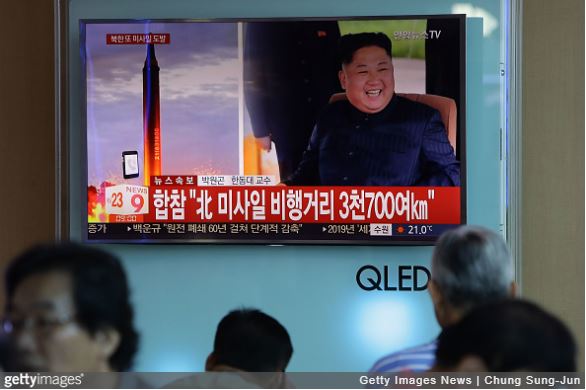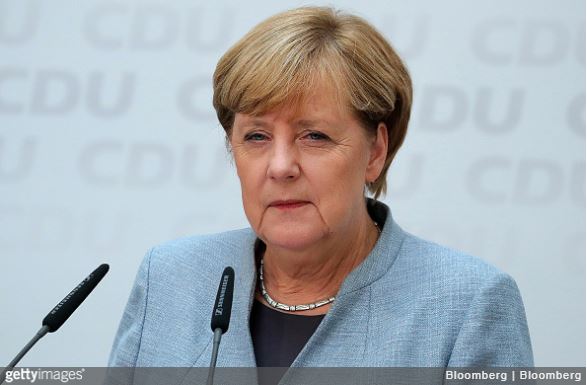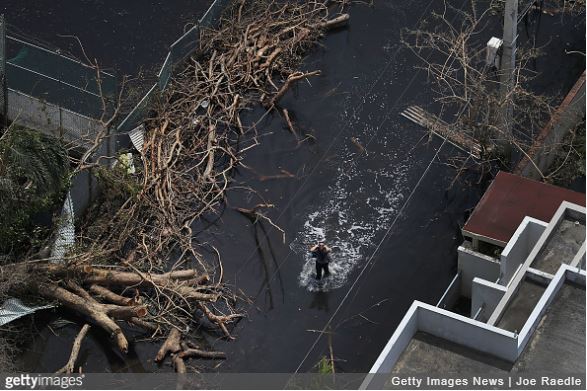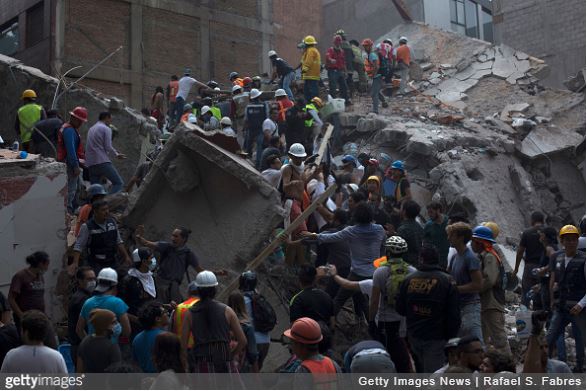
The following are some of major events that have been dominating the global headlines in the month of September.
North Korea carries out sixth nuclear test, escalates tension with US
Tensions in the Korean Peninsula continued to escalate in early September when North Korea conducted its sixth nuclear test since 2006. The test drew strong condemnations from the United States and its allies including Japan and South Korea, as well as the rest of the world for destabilizing the already tense region. In the aftermath of the test, President Donald Trump also engaged in a rhetorical war with the North Korean leader Kim Jong-un, calling the latter the “rocket man” at the UN General Assembly meeting. A new round of sanctions against Pyongyang was also passed by the Security Council. As the heated exchange continued, the latest North Korean nuclear test can largely be interpreted as the next-level threat outlook that Pyongyang wishes to project in the international arena, especially toward the new Trump administration in the White House.

Angela Merkel re-elected as German chancellor for fourth term
It was a bittersweet victory for German Chancellor Angel Merkel as she was re-elected for a fourth term in the country’s parliamentary election. Although Merkel managed to retain power, her party the Christian Democratic Union (CDU) was weakened significantly, while the country’s far-right Alternative for Germany (AfD) party surged forward and became the third largest party in the parliament. The election also saw the crushing defeat of another main party, the Social Democrats, who suffered from its worst performance post-World War II. The shift of support toward the nationalist party was regarded as a blow to Merkel’s politics of consensus as well as a backlash from her policy that opened the country’s doors to refugees and migrants in 2015. The results of the German election also likely to raise further questions about the far-right populism that has been sweeping Europe in recent years.

Political crisis in Togo amid anti-president protests
The political crisis in Togo escalated in September when protests against the president Faure Gnassingbé spread across the country. The protests started in cities such as Sokodé in the centre-north and Dapaong and Mango in the north in August in which demonstrators called for the introduction of presidential term limits. It later spread to other cities including the capital, Lome. Gnassingbé has been the head of state since 2005 when he took over from his father Gnassingbé Eyadema, who seized power in a coup in 1967, seven years after independence. The opposition has been demanding for the current president to step down immediately and be barred from participating in future presidential election, while a deadlock for constitutional amendments continued in the parliament. Similar protests against the dynasty were held in 2005 though they eventually resulted in bloodshed that killed 500 people.
Hurricane Maria causes further destruction in the Caribbean
Amidst the devastation brought upon by Hurricane Irma in August, another hurricane lashed through the Caribbean in September, triggering massive disruption in the region that was still in a fragile recovery process. Hurricane Maria wreaked havoc in several islands located in the Caribbean such as Dominica, Guadeloupe, US Virgin Islands, Puerto Rico as well as Saint Kitts and Nevis. Basic infrastructures in many of these countries were destroyed and a total of 59 fatalities were also recorded as hurricane made its way. Although rebuilding efforts have started, it is unlikely that some of these islands will fully recover as the damage caused by the hurricane was so immense, rendering infrastructures to be unusable.

Double earthquake hits Mexico, hundreds killed
Two earthquakes rocked Mexico in the span of 12 days in September, causing huge losses of lives and properties. The first earthquake, measuring at M 8.1 on the Richter scale occurred off the coastal area of Chiapas state in early September, killing at least 98 people. Following the earthquake, a region-wide tsunami warning was also issued, affecting neighboring countries such as Guatemala and El Salvador. Days later, another M 7.1 earthquake hit central Mexico and resulted in widespread damage in several states namely Oaxaca, Guerrero as well as Mexico City (CDMX). The quake caused several dozen buildings in the capital to collapse and left at least 360 people dead. A state of emergency was declared in the aftermath of the quake, which coincidentally happened 20 years after another similar disaster caused 5,000 casualties.
For more information and an in-depth analytical overview, read our case study on the Mexico earthquakes

